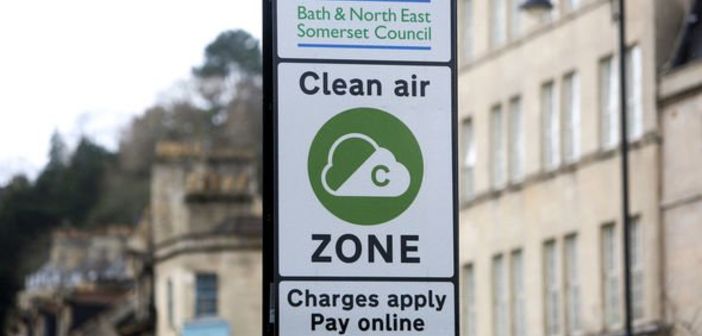Bath’s clean air zone (CAZ) has gone live from today, making it England’s first city outside of London to charge high-emission vehicles.
Private cars and motorbikes are exempt from Bath’s CAZ but taxis, private hire vehicles, minibuses, LGVs and vans, including pick-ups and camper vans, will be charged £9 a day if they do not meet required emission standards.
High-emission buses, coaches and HGVs will be charged £100 a day.
ANPR cameras have been installed on all roads leading into the zone and vehicle number plates will be checked against the DVLA database.
The CAZ is part of Bath and North East Somerset Council’s wider goal to meet UK air quality legislation. It has received £9.4m in UK government funding to help businesses replace polluting vehicles with cleaner, compliant ones.
According to the council, its financial assistance scheme can provide grants and interest-free finance to help businesses replace high-emission vehicles. The council said more than 500 businesses have applied so far.
Furthermore, the assistance scheme also aims to help those who wish to retrofit or re-power vehicles. So far, some £1.58m has been awarded to local bus operators to retrofit vehicles within fleets.
Dine Romero, leader of Bath and North East Somerset Council, said: “This a landmark day for the city. We’ve put up with unacceptable levels of nitrogen dioxide for too long. This is unfair on residents, particularly vulnerable older people and children.
“We want to reduce NO2 pollution in Bath to within legal limits by the end of 2021 at the latest, and a charging clean air zone is the only way we can achieve this.
“We know this is difficult time for businesses, but we’ve gone ahead with the zone during the pandemic because this is a pressing public health issue.
“However, we are working with residents and businesses to help them replace polluting vehicles with cleaner ones and there is significant financial and practical help available.”
Bath is the first of several cities looking to introduce charging clean air zones over the next few years. The move has been welcomed by Asthma UK and the British Lung Foundation.
Sarah MacFadyen, head of policy and public affairs for the charities, said: “Air pollution is bad for everyone, but it disproportionately impacts the most vulnerable in our society including children, older people and those with a lung condition such as asthma and COPD.
“Road transport is the biggest cause of harmful emissions in our cities, which can cause breathing difficulties for people with lung conditions and put them at risk of life-threatening asthma attacks or COPD flare-ups.”





